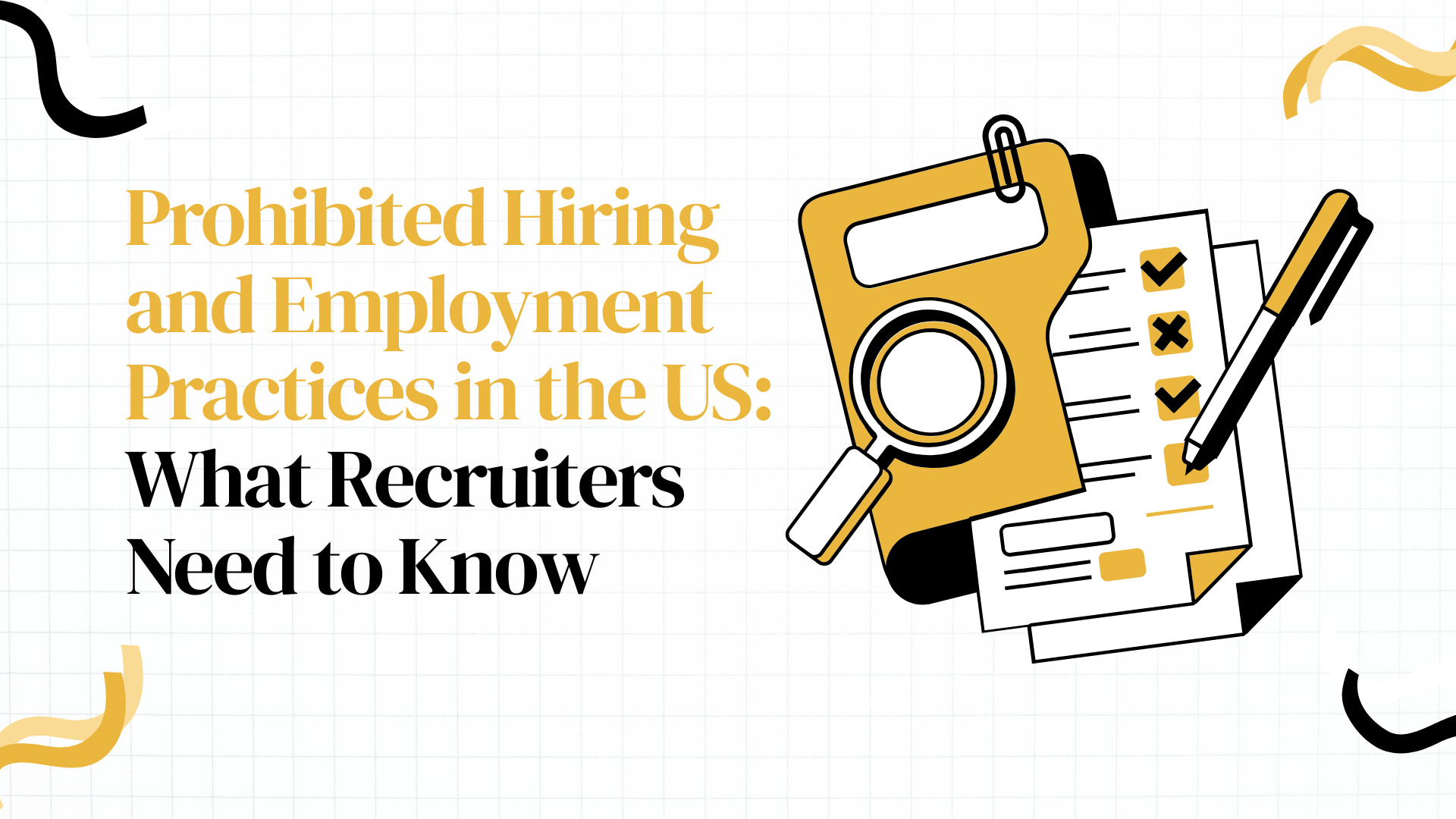In the US, the Equal Employment Opportunity Commission (EEOC) defines prohibited hiring and employment practices and enforces key anti-discrimination laws that govern recruitment, hiring, and employment. Unlike the UK’s more centralized employment regulations, US labor laws vary at federal, state, and even local levels. Failing to comply can lead to legal repercussions, reputational damage, and lost business opportunities. Here are some key prohibited hiring and employment practices to help recruiters navigate the complexities of US labor laws.
Discrimination in Hiring and Employment
US employers are prohibited from discriminating against applicants or employees based on protected characteristics, including race, color, religion, sex (including pregnancy, sexual orientation, and transgender status) national origin, age (40 or older), disability, genetic information. Employers must ensure that hiring decisions are based on job-related qualifications rather than personal characteristics.
Job Ads
Recruiters often work with the hiring manager to produce a good job description. Job postings must be inclusive and free from language that could be seen as discriminatory. For example, ads specifying a preference for “young professionals” or “recent graduates” may exclude older applicants, as well as using gender-specific job title such as salesman, or waitress. This would violate US law. Moreover, as many as 39% of potential applicants may be hesitant not to apply for a role at an organisation that doesn’t appear to be inclusive. Here is how to make your job adverts more inclusive.
Recruitment Practices
Word-of-mouth hiring or targeting certain demographic groups can be unlawful if it disproportionately excludes other qualified candidates. Recruiters should ensure outreach efforts are broad and inclusive, and that they advise clients against targeting a specific demographic group.
Hiring Decisions
Employers cannot base hiring decisions on stereotypes, assumptions, or personal biases. Job-related assessments must be fair and necessary for the role. Any pre-employment tests must not disproportionately exclude protected groups unless they are demonstrably job-related.
Pre-Employment Inquiries and Background Checks
According to the law pre-employment questions should limit to information essential for job performance.
Inquiries that include questions about either of the following would class an inappropriate and put you at risk.
- Race, religion, or national origin
- Marital status or number of children
- Age or date of birth
- Disabilities or medical history (pre-offer)
- Financial status or credit history (unless job-related)
Background Checks
Employers conducting background checks must comply with the Fair Credit Reporting Act (FCRA) and EEOC guidelines. Background checks must be applied consistently and cannot be used to disproportionately exclude candidates from certain backgrounds. In some states, employers may consider negative background information only if it is directly relevant to the job. For example, criminal records should only be factored in if the nature of the crime has a direct connection to the responsibilities of the position.
Equal Pay & Benefits
Under the Equal Pay Act, men and women must receive equal pay for equal work. The Civil Rights Act prohibits discrimination in the payment of wages on the grounds of race, while the Americans with Disabilities Act prohibits discrimination in the payment of wages on the grounds of disability. Employers must ensure fair distribution of benefits, including health insurance, overtime, and retirement plans.
The Family Medical Leave Act ensures an entitlement for employees to take unpaid, protected leave per year for family or medical reasons.
An experienced Employer of Record partner can provide full legal guidance while ensuring compliance with federal and state labor laws.
